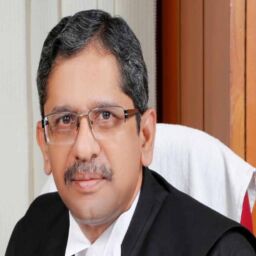INTRODUCTION
Old age protection plays an important role in the well-being of a person and one of the age-related risks of retirement is pension. Pensions are the benefit that people receive after retirement or their widows and even their deaths. Retirement at work itself is a new phase of life. Means a mandatory service suspension. In India, pensions are paid to people after they retire after spending time in their field. It is referred to as a post-retirement salary or can be a “defined benefit plan” in which a fixed amount of income is included during the employee’s working years. In the case of the Indians, the problem of aging is very important. Pension benefits are set aside as security for the elderly. The pension provision is placed under The Employee’s Pension Scheme, 1955. The Supreme Court said the pension was a hard-earned benefit earned by an employee and in the form of “property”. The need for a pension for those who have retired is very important and it gives them a living wage to meet their basic needs and to live happily ever after. With these factors in mind, the Government of India regarded the pension right as a fundamental right under Article 21 of the Indian Constitution and as a ‘Property’ under Article 300-A of the Indian Constitution.
NATIONAL PENSION SCHEME (NPS)
NPS was brought by a thought process that the government is not going to fund one’s retirement or the government is not going to take care of the second inning of your life. This was the thought process that the government initially introduced NPS in 2004 only for government employees and in 2009, they made it open for all. The original thought process is that you can save for your retirement. Whenever one is working, he contributes this small amount to NPS, and at a later date, he can withdraw the whole amount or in parts. There is a regulatory authority for NPS, which is PFRDA (Pension Fund Regulatory and Development Authority).
NPS helps us in inculcating disciplined saving. If one doesn’t save in a disciplined manner, how will one enjoy their second innings of life? The second reason is a vigilant investment which will help as a future investment and the third reason was building a sufficient retirement corpus.
LEGAL PROVISIONS
In India, The Employee’s Pension Scheme, 1955 is for members of Provident Funds who register for the Employee’s Provident Fund Scheme, 1952, or any other legal pension scheme. The scheme applies to all institutions where the employee benefits are provided by the Employee’s Provident and Miscellaneous Provisions Act, 1952. The pension policy is followed as a social policy for employees to live even after their retirement age and do not have to worry about food in their later months of life.
Protection of the provision of a pension right is provided under Article 300A of the Indian Constitution, which states, ‘no person shall be deprived of his property except by the power of law’. The right to a pension is no longer a fundamental right but has been set aside as a constitutional right under the Right to Property. It protects a person from intrusion and robs a person of property unless it is under the law established by law. E-State of Jharkhand vs. Jitendra Kumar Srivastava, 2013 The Supreme Court ruled that a pension is not a benefit but an asset that cannot be taken by the proper legal process.
As such, Article 21 states that no person shall be deprived of his life or liberty without the consent of the law. This document protects two human rights:
- Right to life
- Right to personal freedom
JUDICIAL REVIEW
The ancient notion of a pension as compensation is a pleasing payment with the will or the employer’s favor which is not required as a right, therefore, no pension right may be enforced by the Court swept under the carpet by decision Constitutional Bench to Deokinandan Prasad v. the State of Bihar and Ors. [1971] Su. S.C.R. 634 where this Court has ruled convincingly that the pension is a right and its payment is not subject to the discretion of the State but is governed by the rules and the public servant who comes to those rules is entitled to claim a pension. It was also held that pension benefits do not depend on the perception of anyone. It is only to estimate the amount of money in terms of service and other entities where the authority may be required to issue such an order but the right to a pension, flows to the employee not because of any such order but because of the rules. This idea was reaffirmed in the Province of Punjab and Anr V. Iqbal Singh (1976) IILLJ 377SC. Right to receive pension was recognized as right to property by the Constitution Bench Judgment of this Court in Deokinandan Prasad v. State of Bihar.
In Naini Gopal vs Union of India, A petition was filed in the case on the merits of the case and the court barred the Bank from receiving any additional deductions from the claimant’s pension and ordered the bank to repay a dollar bill. 3,27,045 received from the applicant’s pension account with an additional interest rate of 18% per annum from the date of receipt of each installment. It also ordered the respondent to compensate the requester by paying Rs. 50,000 / – attraction costs of Rs. 1000 / – per day delay. The court held that the bank was responsible and considered the bank’s action to be unreasonable and unauthorized by violating the principles of environmental justice. The court also recognized that the pension policy paid for the extension of maintenance as ‘property’ under Article 300-A of the Indian Constitution and is a fundamental right to earn a living in a dignified manner under Article 21 of the Indian Constitution. Expropriation of even a small portion of the amount cannot be done, without conditions subject to legal authority.
CONCLUSION
Pensions are an inseparable part of a deferred income as a matter of entitlement. It is the responsibility of the government to protect the dignity of citizens and to stand by their rights. Every single person has the right to a pension so that every pension deserving citizen lives the second inning of their life without any financial stress in our country.
Author(s) Name: Muskan Baid (Ideal Institute of Management and Technology, GGSIPU)
References:
- Government of India, Ministry of Statistics and Programme Implementation, ‘Elderly in India: 2016’ http://www.mospi.nic.in/sites/default/files/publication_reports/ElderlyinIndia_2016.pdf?download=1
- Shri Naini Gopal v/s Union of India & Ors, 1965 35 CompCas 30 SC
- Deokinandan Prasad v. State of Bihar and Ors. [1971] Su. S.C.R. 634
















